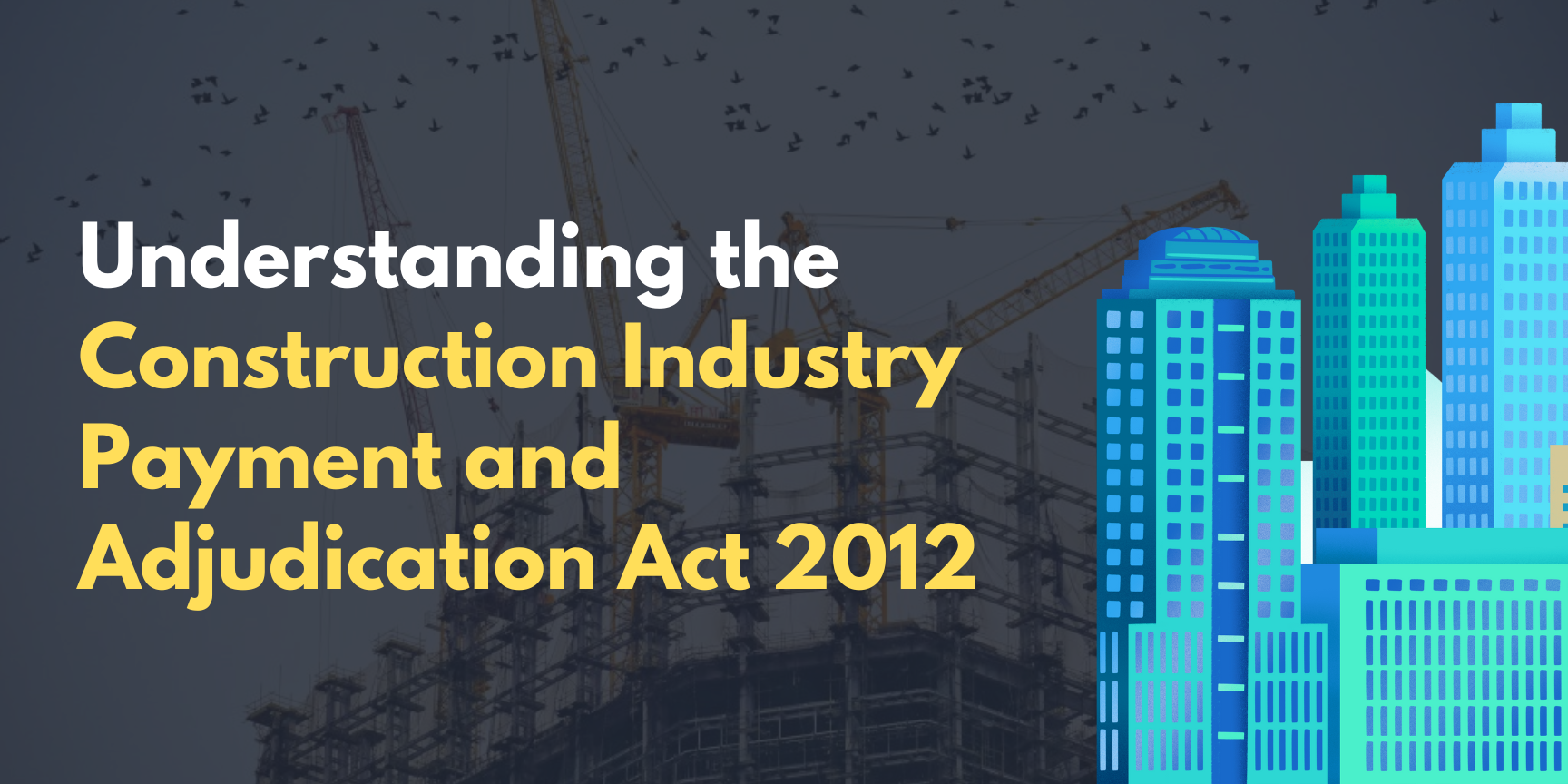
It has been over a decade since the Construction Industry Payment and Adjudication Act 2012 (CIPAA) came into effect on April 15, 2014. Since its introduction, CIPAA has played a pivotal role in transforming how payment disputes are resolved in Malaysia’s construction industry. According to the Asian International Arbitration Center (AIAC), over 5,000 adjudication disputes have been registered since the act’s inception, with a staggering RM1.3 billion in disputes reported in 2023 alone.
1.The Purpose and Applicability of CIPAA
CIPAA was designed to address one of the most significant challenges in the construction industry: payment disputes. These disputes often lead to delays, project abandonment, and financial strain due to underpayment, late payment, or non-payment. CIPAA offers a solution by providing a fast, cost-effective method to resolve these disputes, helping to prevent project delays and financial gridlock.
The essence of CIPAA is captured in the phrase “Pay Now, Argue Later.” It requires one party to make a payment quickly to address cash flow concerns, while allowing for more complex issues to be resolved through arbitration or litigation at a later stage. Importantly, parties cannot opt out of this statutory adjudication process, meaning it remains an available avenue for dispute resolution, regardless of any contrary provisions in the construction contract.
However, CIPAA’s applicability is confined to disputes arising from a “construction contract,” covering non-payment for work done, services rendered, or materials supplied under a written agreement. This means that even if the project isn’t completed in its entirety, CIPAA can still apply, as long as the payment item is expressly included in the contract.
2.The Adjudication Process Under CIPAA
The adjudication process under CIPAA is designed to be straightforward and quick, ensuring that disputes are resolved in a timely manner. Here’s a step-by-step breakdown of the process:
The adjudication process under CIPAA is designed to be straightforward and quick, ensuring that disputes are resolved in a timely manner. Here’s a step-by-step breakdown of the process:
1. Payment Claim: The process begins when the unpaid party serves a ‘Payment Claim’ on the non-paying party.
2. Payment Response: The non-paying party has 10 working days to respond with a ‘Payment Response.’ If no response is provided within this timeframe, the non-paying party is deemed to have disputed the entire claim.
3. Notice of Adjudication: After receiving the ‘Payment Response’ or after the 10 working-day period expires, either party can refer the dispute to adjudication by serving a ‘Notice of Adjudication.’
4. Appointment of Adjudicator: Within 10 working days of the ‘Notice of Adjudication,’ an adjudicator must be appointed.
5. Adjudication Claim: The claiming party must serve the ‘Adjudication Claim’ within 10 working days of the adjudicator’s acceptance of the appointment.
6. Adjudication Response: The responding party then has 10 working days to serve an ‘Adjudication Response.’
7. Adjudication Reply: The claiming party may respond to the ‘Adjudication Response’ within 5 working days.
8. Adjudication Decision: The adjudicator delivers the ‘Adjudication Decision’ within 45 working days from the later of the receipt of ‘Adjudication Reply’ (or from when the ‘Adjudication Response’ was due if not provided).
3.The Finality and Enforcement of Adjudication Decisions
The ‘Adjudication Decision’ is final and binding unless set aside by the High Court. To enforce the decision—akin to a court judgment—the winning party must register it with the High Court. However, the losing party has the right to apply to the High Court to set aside the decision on specific grounds.
Even if the losing party refuses to comply with the ‘Adjudication Decision,’ there is still recourse. Under Section 30 of CIPAA, the winning party can seek payment from the principal of the losing party, such as the employer, main contractor, or developer. Remarkably, this mechanism is available even if the losing party is in liquidation.
4.Conclusion
Over the past decade, CIPAA has significantly impacted the Malaysian construction industry by providing a swift, cost-effective mechanism for resolving payment disputes. This statutory process helps maintain cash flow and prevents project delays, ensuring that construction projects can proceed smoothly. As the industry continues to evolve, CIPAA remains a vital tool for parties seeking to resolve payment disputes efficiently.
For more detailed information or specific inquiries about CIPAA, feel free to contact us.
5. Q&A
Q1: What is the Construction Industry Payment and Adjudication Act 2012 (CIPAA)?
CIPAA is a Malaysian law enacted to address payment disputes in the construction industry. It provides a fast, cost-effective method for resolving disputes related to non-payment, late payment, or underpayment for work done, services rendered, or materials supplied under a construction contract.
Q2: What does the phrase “Pay Now, Argue Later” mean in the context of CIPAA?
“Pay Now, Argue Later” encapsulates the core principle of CIPAA. It means that one party is required to make a payment promptly to address cash flow concerns, even if there are disputes. The more complex issues can be resolved later through arbitration or litigation, but the immediate payment helps prevent delays and financial strain.
Q3: Who can use CIPAA, and what types of contracts does it apply to?
CIPAA is available to all parties involved in a “construction contract” including employers, contractors, and sub-contractors. It applies to disputes over non-payment for works done, services rendered, or materials supplied under a written construction contract. Importantly, parties cannot opt out of this statutory process, making it universally applicable within the industry.
Q4: How does the CIPAA adjudication process work?
The CIPAA adjudication process begins when the unpaid party serves a ‘Payment Claim’ on the non-paying party. If the non-paying party does not respond within 10 working days, they are deemed to have disputed the claim. The dispute can then be referred to adjudication, where an adjudicator is appointed, and both parties submit their claims and responses. The adjudicator delivers a decision within 45 working days, from the receipt of the ‘Adjudication Reply’ (or from when the ‘Adjudication Response’ was due, if not provided), providing a quick resolution to the dispute.
Q5: Is the Adjudication Decision final and binding?
Yes, the ‘Adjudication Decision’ is final and binding unless it is set aside by the High Court. The winning party must register the decision at the High Court to enforce it, similar to a court judgment. The losing party can challenge the decision in court, but only on specific grounds.
